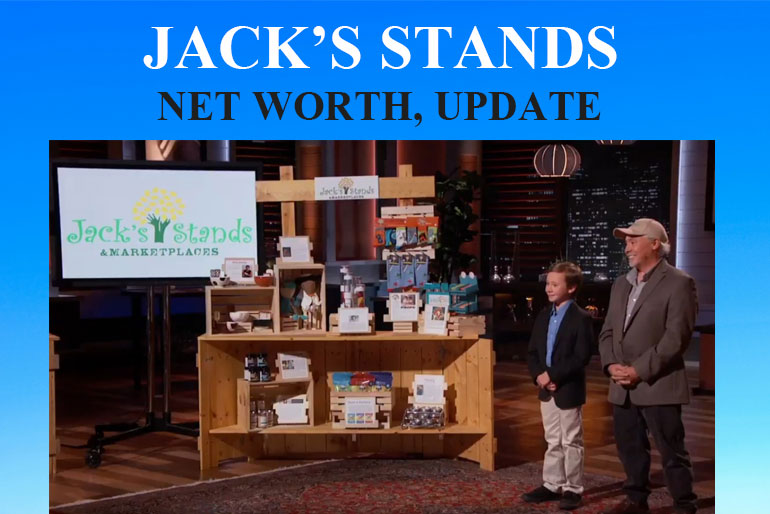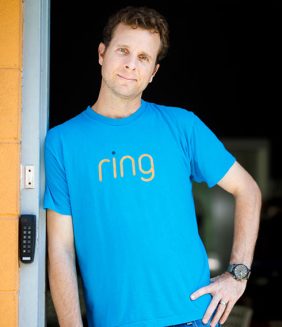When then-ten-year-old Colorado kid-preneur Jack Bonneau rolled a wooden lemonade cart onto Shark Tank back in 2016, he wasn’t just selling drinks—he was pitching a way for children everywhere to dip a toe into business by running branded pop-up stands. He asked the sharks for $50,000 in exchange for 10 percent of Jack’s Stands & Marketplaces.
How it all started
Jack’s first cart popped up at a Broomfield farmers’ market in 2014. One summer brought $2,000 in sales and about $900 in profit, plenty to buy the LEGO set that inspired the venture—and, more important, enough to spark a bigger idea.
Wanting to expand, he borrowed $1,000 from his parents and $5,000 from Young Americans Bank, a Denver lender that issues loans only to minors. Those funds paid for a purpose-built cart, ingredients, insurance, and booth fees at additional markets. By the time ABC producers called, Jack’s carts were operating in Denver, Boulder, and Loveland with numbers banks and investors could verify.
The pitch in plain language
Onstage with his dad, Steve, Jack said seven stands were already open—two in shopping malls and five at outdoor markets. The two mall kiosks had cleared $15,000 in three months, and he projected $150,000 in total sales for 2016.
Kevin O’Leary worried the venture might derail Jack’s schooling, Mark Cuban doubted nationwide scaling potential, and Barbara Corcoran plus Lori Greiner found the model complex. Guest shark Chris Sacca, however, offered a $50,000 loan at 2 percent interest, released in $10,000 tranches—an offer Jack accepted on the spot.
How the stands actually work
Jack’s Stands supplies a turnkey kit—cart, signage, POS tablet, product, and liability insurance. Young operators sign up for a four-hour shift and keep everything above cost. Jack’s team handles permits; malls take 15 percent of revenue. Parents like the structure because kids handle real cash in a safe spot, while customers enjoy supporting budding entrepreneurs. At its 2017 peak, the company logged more than 1,000 kid shifts in one season across Colorado.
Momentum right after the show
National TV triggered coverage from Today and The New York Times, sparking inquiries nationwide. Jack chose partnerships over frantic franchising:
- Santa Cruz Organic supplied lemonade and tea for every stand
- Good Times Burgers & Frozen Custard hosted in-restaurant mini-stands.
- Farmers’-market associations bundled booth space
Local press reported the stands cleared $100,000 halfway through summer 2017.
A curveball from state regulators
In 2019 Colorado enacted Senate Bill 103, limiting how long youth-run businesses could operate without permits. While the law waived fees, it capped operating days and added distance rules. For a program that ran many weekends, forced downtime hurt. Jack’s team applied for 501(c)(3) status and converted into a nonprofit in 2021, directing surplus funds to youth-venture micro-grants.
Spinning off Teen Hustl
High-school friends complained that big delivery apps skipped suburbia, so Jack founded Teen Hustl in 2019. Teens deliver restaurant meals, Amazon returns, and neighbor-to-neighbor packages on e-scooters and bikes.
Pilot hubs began in Broomfield and Westminster. By 2024 the flagship hub averaged 250 deliveries a week, the break-even point Jack had forecast.
Awards and recognition
- Prudential Emerging Visionary (2023) for Teen Hustl’s environmental and social impact
- U.S. Chamber Young Entrepreneur Award (2020) for national promise
Current net worth explained
Analysts who track Shark Tank estimates peg Jack’s Stands at about $3.65 million in 2025, using a 10 percent annual growth model. That is enterprise value, not Jack’s personal wealth, which includes Teen Hustl equity and speaking fees but remains private.
Life at Dartmouth and beyond
Now 18 and a rising junior at Dartmouth, Jack double-majors in physics and math, chairs Teen Hustl board calls, and hosts a podcast called Kid Capital.
A wider trend in kid enterprises
Jack’s journey mirrors a nationwide push to let minors try business without red tape. Colorado’s 2019 law joined similar moves in Utah, Texas, and Illinois, signed by Governor Jared Polis while surrounded by young founders with homemade signs. Industry watchers predict kid-run ventures will grow from $400 million in 2023 to $700 million by 2027 as card-readers and social media lower barriers. Jack’s nonprofit stands offer families an easy on-ramp.
Lessons budding entrepreneurs can use
- Start with a real need. A LEGO set sparked the first cart.
- Know your numbers. Clear figures impressed the sharks.
- Scale at the right pace. Partnerships beat over-stretching.
- Stay flexible. Converting to nonprofit status kept the mission alive.
- Let the brand mature with you. Lemonade for grade-schoolers evolved into eco-delivery for teens.
FAQ lightning round
Did Chris Sacca’s loan convert to equity?
Public records suggest it remained a credit line.
How many stands run in 2025?
Eight Colorado pop-ups operate seasonally, staffed by about 120 kids a year.
Can families elsewhere join?
The nonprofit now ships “stand-in-a-box” kits for school fund-raisers.
Is Teen Hustl profitable yet?
Flagship hubs show slim profits; expansion depends on bulk scooter leasing.
The bottom line
Jack’s Stands no longer chases a kiosk in every mall, yet its influence is wider than ever. Thousands of kids have poured lemonade, counted change, and discovered the thrill of earning a dollar through their own work. Teen Hustl carries that lesson forward, proving that a simple roadside cart can evolve into a multi-million-dollar ecosystem for youth entrepreneurship—without a single bit of jargon along the way.
















